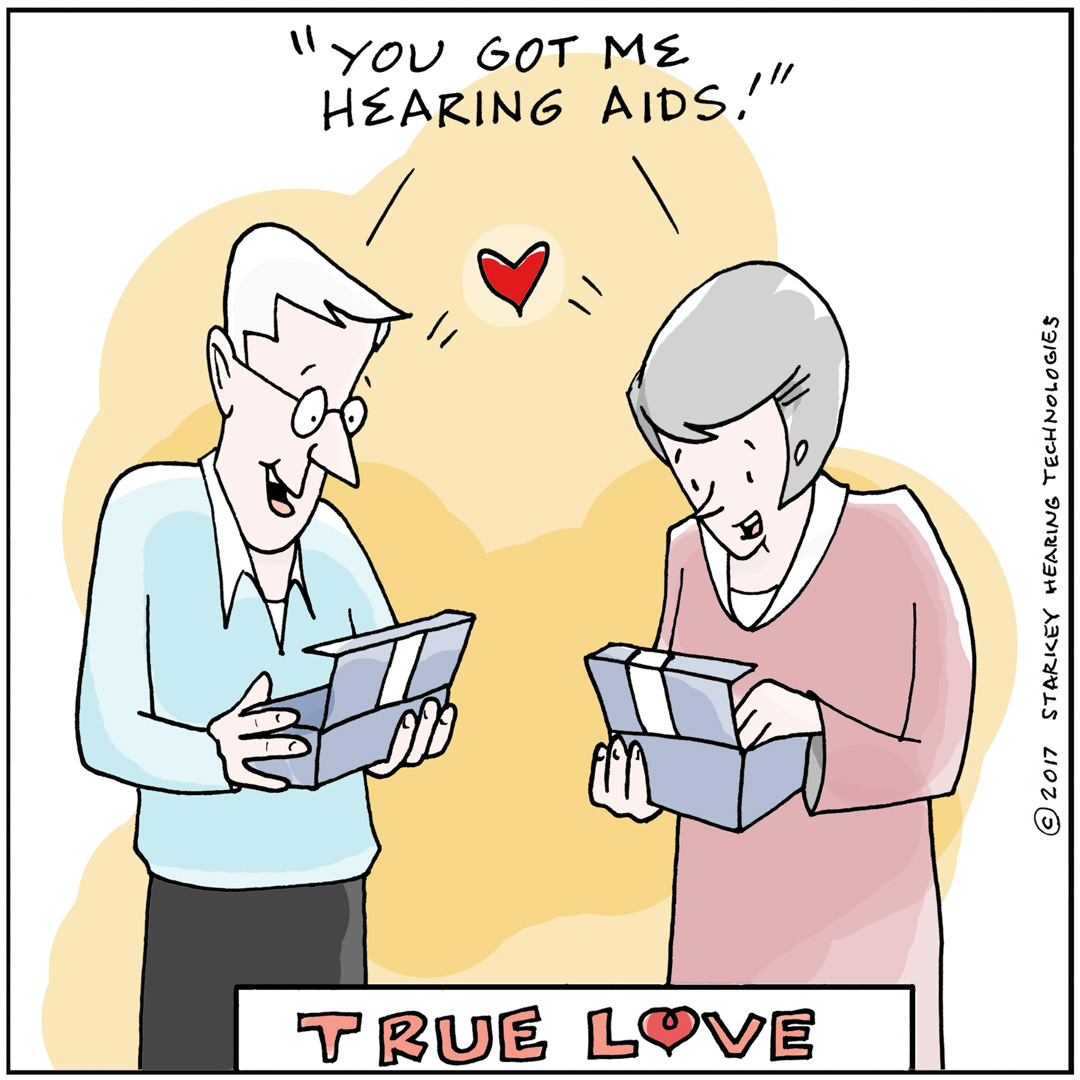My friend, Jeanne, has new hearing aids, and I’m green with envy. Compared to her aids, mine seem about as cutting edge as a horse and buggy in the dawning era of the car.
Here’s what hers will do:
When she turns on her TV set, the audio goes straight to her ears through the aids. What’s more, the sound has never been clearer, she says.
If she wants to stream music, or listen to a podcast or audiobook that’s been downloaded onto her smartphone, she can send it straight to her hearing aids, which have been paired with her phone via Bluetooth.
When she gets a phone call, she takes it by pressing a tiny button on one of her aids. If she’s watching television at the time, the TV audio is immediately replaced by the voice of her caller. As soon as the call ends, the audio comes back.
If Jeanne has trouble hearing in a noisy restaurant (a problem that drives me crazy), she taps on her cell phone a few times—and it mutes much of the background noise.
She never has to replace tiny batteries. Last thing at night, she just drops her aids into a recharger.
During the five years I’ve had my own hearing aids, there have been all kinds of advances in what these devices can do. It’s not hard to guess why.
In the past, most decision makers in the health field didn’t take hearing loss all that seriously. They seem to have assumed it was simply part of normal aging. That may explain why Medicare doesn’t pay for aids or even for routine hearing tests, nor do most health insurance policies.
But now a number of studies have linked hearing loss to medical problems nobody wants to have, including depression and dementia. In fact, being hard of hearing raises the likelihood that you’ll develop dementia within 10 years by a whopping 50 percent.
Could treatment in the form of hearing aids head off that devastating loss of memory? The National Institute for Aging has an ongoing study designed to answer that question—results are expected in 2022.
Another major reason companies have improved hearing aids is simply because they can, thanks to technological advances. Already, there have been a number of innovations beyond those in Jeanne’s aids, and a few of them sound like science fiction.
For instance, if you live in a smart house, some hearing aids will let you know when the doorbell rings or the laundry is done. They will also automatically turn off the lights when you shut your aids down at night.
Other aids have been equipped with sensors and artificial intelligence. They can record the number of steps you take and how much time you spend in conversation, add them up and give you your wellness score for the day. What’s more, if you fall, they will immediately text the news to your emergency contact.
But this is the innovation that really amazes me. Let’s say your native tongue is English and you meet someone who launches into French. Some hearing aids will provide a simultaneous translation.
You can also now get earbuds that can sometimes function as hearing aids—and hearing aids that look like earbuds. The idea is that, either way, onlookers who notice what’s in your ears won’t suspect that you’re hard of hearing but will assume you’re just listening to music. Companies that make these devices are trying to get around a stigma: a lot of people are afraid that, if they wear hearing aids, others will see them as “old.” Of course, that’s a fear born of ageism, and the companies are catering to it.
But it seems to me that almost anything that persuades more people to get their ears some help is a good thing, because of those connections between hearing loss and depression and dementia.
Needless to say, some of the new, high-end capabilities I’ve described command high-end prices, which is too bad. Four out of five people who need hearing aids don’t have them, partly because of ageism, but more importantly because of the price—$4,800 on average for a pair. And with most of these new, smart hearing aids, there’s also the cost of a smartphone.
But in a year or so, Americans will be able to buy some aids (presumably not high-tech) over the counter for prices expected to be much lower than today’s, and that should help.
My own hearing aids, now five years old, are probably nearing the end of their life. Once they go silent, I’m definitely going to get something like what Jeanne has. And despite the big bite that will take out of my bank account, I’m actually looking forward to it.

Flora Davis has written scores of magazine articles and is the author of five nonfiction books, including the award-winning Moving the Mountain: The Women’s Movement in America Since 1960 (1991, 1999). She currently lives in a retirement community and continues to work as a writer.



